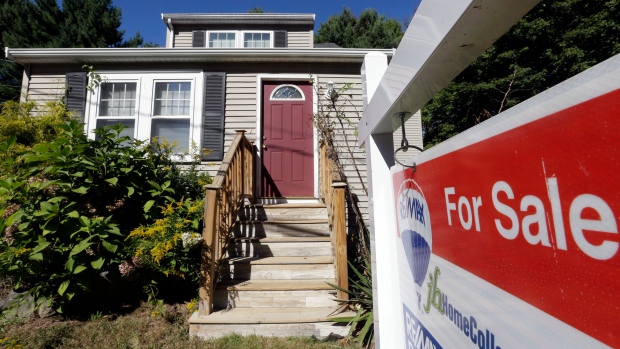New housing measures announced by Finance Minister Bill Morneau earlier this week will do little to address surging home prices in Toronto, said Jason Mercer, director of market analysis for the Toronto Real Estate Board, in an interview with BNN.
Home sales in the Greater Toronto Area jumped 21.5 per cent in September to 9,902 units, according to data released by the TREB on Wednesday. The torrid sales pace stands in contrast to the nearly 33 per cent plunge in sales in Vancouver last month in the wake of a new tax on foreign homebuyers that took effect in August.
The average selling price in Toronto reached $755,755 last month, marking a 20.4 per cent gain from a year earlier amid a plunge in inventory. Active listings in the city tumbled 36.6 per cent year over year.
The sales data was released two days after Morneau unveiled a basket of new policies to tighten mortgage lending and capital gains tax exemption rules. But Mercer argues those measures don’t address a major driving force for price gains in Toronto: tight supply.
“While the new changes announced by the federal government this week are pointed at the demand side of the equation,” Mercer said, “even if we did see a pullback in sales activity, the level of listings [in Toronto] is so low right now that that doesn’t necessarily guarantee that you’re not going to continue seeing strong rates of price growth.”
The greatest price appreciation in the month was in Toronto's surrounding 905 region, where the average price for a detached property soared 26.6 per cent to $928,414. In the City of Toronto, the average price for a detached property rose 23 per cent to $1.29 million.
Prices for condos in Toronto proper grew only 6.5 per cent to $446,294. Condo prices in other parts of the Greater Toronto Area were up 19.4 per cent to $367,260.
Mercer said the federal government’s new housing rules may force some buyers to “take a step back and at least reassess their situation,” but provincial and local governments should do more to streamline the approval of building new homes in the GTA.
“There’s also a bit of a vicious circle as people have seen that, ‘Hey, it’s difficult for me to sell my home or find a home that meets my needs,’” Mercer said. “Some people just decide to renovate and that’s had the effect of removing some stock from the marketplace.”
The stark contrast in home sales activity between Vancouver and Toronto has some analysts speculating that foreign buyers are shifting their focus from Canada’s most expensive real estate market.
Mercer said that it’s “too early to tell” if the 15-per-cent tax on foreign home buyers in Vancouver is affecting Toronto’s market.
TREB is currently surveying its members to collect data on whether sales are being conducted by domestic or foreign buyers. The results are expected to be released in the coming months, Mercer said.












